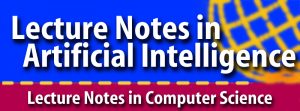WORKSHOP ON MULTIPLE-ASPECT ANALYSIS OF SEMANTIC TRAJECTORIES (MASTER 2019)
- Submission deadline: June 25th, 2019 *extended*
- Authors notification: July 19th, 2019
- Camera-ready due: July 26th, 2019
- Registration: July 26th, 2019
In conjunction with ECML/PKDD Würzburg, Germany, 16-20/09/2019
ECML-PKDD
September 16, 2019
Building Z6, Hubland Campus, University of Würzburg
Room 2.003
9:00 – 9.30 Welcome from the organizers & Introduction: Multiple-Aspect Analysis of Semantic Trajectories
Dr. Chiara Renso (CNR), Prof. Stan Matwin (Dalhousie University), Asst. Prof. Konstantinos Tserpes (Harokopio University)
Session 1 Analysis of vessel data
9:30 – 9.50 Uncovering hidden concepts from AIS data: A network abstraction of maritime traffic for anomaly detection
Ioannis Kontopoulos, Iraklis Varlamis and Konstantinos Tserpes, (Harokopio University of Athens, Greece)
9:50 – 10.10 Predicting Fishing Effort and Catch Using Semantic Trajectories and Machine Learning
Pedram Adibi (Institute for Big Data Analytics, Dalhousie University, Halifax, Canada), Fabio Pranovi, Alessandra Raffaetà, Elisabetta Russo, Claudio Silvestri and Marta Simeoni (Dipartimento di Scienze Ambientali, Informatica e Statistica, Università Ca’ Foscari, Venezia), Amilcar Soares and Stan Matwin (Institute for Big Data Analytics, Dalhousie University, Halifax, Canada)
10:10 – 10.20 Questions and debate
10:30 – 11.00 Coffee break
Session 2 Trajectory prediction
11:00 – 11.20 Online long-term trajectory prediction based on mined route patterns
Petros Petrou, Panagiotis Tampakis, Harris Georgiou, Nikos Pelekis and Yannis Theodoridis (University of Piraeus, Greece)
11:20 – 11.40 EvolvingClusters: Online Discovery of Group Patterns in Enriched Maritime Data
George-Stylianos Theodoropoulos, Andreas Tritsarolis and Yannis Theodoridis (University of Piraeus, Greece)
11:40 – 12.00 A Neighborhood-augmented LSTM Model for Taxi-Passenger Demand Prediction
Tai Le Quy (Leibbiz University Hannover, Germany), Myra Spiliopoulou (Otto-von-Guericke-University Magdeburg, Germany), Wolfgang Nejdl (L3S and University of Hannover, Germany) and Eirini Ntoutsi (Leibbiz University Hannover, Germany)
12:00 – 12.20 Multi-Channel Convolutional Neural Networks for Handling Multi-Dimensional Semantic Trajectories and Predicting Future Semantic Locations
Antonios Karatzoglou (Robert Bosch GmbH Germany)
12:20 – 12.40 Questions and debate
12:40 – 14.00 Lunch Break
14:00 – 15.00 Invited Talk: Learning from our movements – The mobility data analytics pipeline
Prof. Yannis Theodoridis (University of Piraeus, Greece)
15:00 – 15.20 Coffee break
Session 3 Mobile sensing and analysis
15:20 – 15.40 Nowcasting Unemployment Rates with Smartphone GPS data
Daisuke Moriwaki (Cyberagent, inc., Japan)
15:40 – 16.00 Prospective Data Model and Distributed Query Processing for Mobile Sensing Data Streams
Mariem Brahem, Karine Zeitouni, Laurent Yeh and Hafsa El Hafyani (University of Versailles-Saint-Quentin, France)
16:00 – 16.20 Questions and debate
16:20 End of workshop
Prof. Yannis Theodoridis, University of Piraeus, Greece
Title: Learning from our movements – The mobility data analytics pipeline
Abstract:
Once upon a time, it was the ChoroChronos EU research project (1996-2000). The challenge at that time was to bring spatial and temporal database aspects together in a, then emerging, integrated spatio-termporal domain. As time passed, new challenges appeared and addressed by the researchers of the field: efficient system architectures, knowledge discovery from mobility data, privacy aspects, etc. Nowadays, in the era of Data Science and Big Data, Mobility Data Analytics (MDA) aims at learning from objects’ movements, covering a range of methods and solutions, from de-noising of location information and integration of multiple sources to predictive analytics, either offline or online. In this talk, after we provide a flashback to the past (from the speaker’s personal point of view), we overview the MDA pipeline step-by-step through real-world use cases. Current trends in MDA, including semantic or holistic trajectories, are also presented.
Presentation in PDF is available here:
Speaker’s bio:
 Dr. Yannis Theodoridis is Professor of Data Science at the Department of Informatics and founding Director of the Data Science Lab, University of Piraeus, Greece. He has served as member of the editorial board of ACM Computing Surveys (2016-19), member of the Endowment of the Symposium on Spatial and Temporal Databases – SSTD (2010-), general co-chair for SSTD’03 and ECML/PKDD’11, PC vice-chair for IEEE ICDM’08, and PC member for several conferences, including ACM SIGMOD/PODS, IEEE ICDE, ACM SIGKDD, IEEE ICDM, etc. Since 2001, he has been a (co-) principal investigator in several research projects funded by various government agencies (EU, Greece) through open calls. His research interests include Data Science (big data management and analytics) for humans’ mobility-related information. He has co-authored three monographs and over 100 refereed articles in scientific journals and conferences, with over 10,000 citations so far, according to Google Scholar. He holds a Dipl. Eng. (1990) and Ph.D. (1996) in Computer Engineering, both from the National Technical University of Athens (NTUA). For more information: www.unipi.gr/faculty/ytheod/; www.datastories.org.
Dr. Yannis Theodoridis is Professor of Data Science at the Department of Informatics and founding Director of the Data Science Lab, University of Piraeus, Greece. He has served as member of the editorial board of ACM Computing Surveys (2016-19), member of the Endowment of the Symposium on Spatial and Temporal Databases – SSTD (2010-), general co-chair for SSTD’03 and ECML/PKDD’11, PC vice-chair for IEEE ICDM’08, and PC member for several conferences, including ACM SIGMOD/PODS, IEEE ICDE, ACM SIGKDD, IEEE ICDM, etc. Since 2001, he has been a (co-) principal investigator in several research projects funded by various government agencies (EU, Greece) through open calls. His research interests include Data Science (big data management and analytics) for humans’ mobility-related information. He has co-authored three monographs and over 100 refereed articles in scientific journals and conferences, with over 10,000 citations so far, according to Google Scholar. He holds a Dipl. Eng. (1990) and Ph.D. (1996) in Computer Engineering, both from the National Technical University of Athens (NTUA). For more information: www.unipi.gr/faculty/ytheod/; www.datastories.org.
- Machine learning and Deep Learning with [semantic] trajectory data
- Time series analysis for [semantic] trajectories
- Graph-based methods for [semantic] trajectory analysis
- Visual methods for [semantic] trajectories analysis
- Indexing methods for [semantic] trajectory analysis
- Methods for evaluation of [semantic] trajectory analysis, modeling and prediction
- Data models for [semantic] trajectories
- High-impact results from the fusion of trajectories with semantically-rich datasets
- Anomaly Detection, long-term [semantic] trajectory prediction techniques
- Infrastructures and systems to support the [semantic] trajectory analysis
- Big data issues in [semantic] trajectory analysis
- [Semantic] trajectories stream processing
- Applications of the analysis of [semantic] trajectories, e.g. in the area of smart cities
- Ethical, societal and privacy issues in the analysis of semantically rich trajectories
An ever-increasing number of diverse, real-life applications, ranging from mobile to social media apps and surveillance systems, produce massive amounts of spatio-temporal data representing trajectories of moving objects. The fusion of those trajectories, commonly represented by timestamped location sequence data (e.g. check-ins and GPS traces), with generally available and semantic-rich data resources can result in an enriched set of more comprehensive and semantically significant objects. The analysis of these sets, referred to as “semantic trajectories”, can unveil solutions to traditional problems and unlock the challenges for the advent of novel applications and application domains, such as transportation, security, health, environment and even policy modeling.
Despite the fact that the semantic trajectories concept is not new, we are now witnessing an increasing complexity in the forms and heterogeneity of the enrichment process producing new kinds of trajectory objects. These new objects call for novel methods that can properly take into account the multiple semantic aspects defining this new form of movement data. It is the very nature of the semantic trajectories that makes this analysis challenging. For instance, the data sources and formats are largely heterogeneous, placing hurdles in the fusion process; or their volumes are too large to process them in conventional ways. In the other cases the state of the semantic trajectories is updated at such a rapid pace, that it is very hard to explore them so as to get an indication of their latent semantics, or even process them in a consistent way since they cannot be stored. Another typical problem is with their unreliable and erroneous nature, where signals are arriving in a mixed order, with gaps and even errors. Similarly, the multiple aspects nature of semantic trajectories increases the difficulty of trajectory pattern mining. With the maturing and scaling of Machine Learning and Data Mining technologies as potential tools to address the above-mentioned challenges, and the ubiquity of the trajectory data, the topic of the proposed Workshop fits very well the overall research theme of ECML PKDD.

All accepted papers will be published in a special section of the LNAI conference proceedings and become openly accessible. The costs for gold open access publishing will be covered by the project “MASTER”.
Authors should consult Springer’s authors’ guidelines and use their proceedings templates, either for LaTeX or for Word, for the preparation of their papers. Springer encourages authors to include their ORCIDs in their papers. In addition, the corresponding author of each paper, acting on behalf of all of the authors of that paper, must complete and sign a Consent-to-Publish form. The corresponding author signing the copyright form should match the corresponding author marked on the paper. Once the files have been sent to Springer, changes relating to the authorship of the papers cannot be made.
The copyright form can be downloaded from here.
Selected papers will be invited in a special issue in a journal such as International Journal of Geographical Information Science (IJGIS). The exact journal will be announced soon.
Papers submitted to MASTER2019 should be written in English conforming to the Springer LNCS guidelines. Author instructions, style files and the copyright form can be downloaded here (http://www.springer.com/gp/computer-science/lncs/conference-proceedings-guidelines).
The maximum length of papers is 16 pages in this format. Over-length papers will be rejected without review (papers with smaller than specified page margins and font sizes will be treated as over-length).
Up to 10 MB of additional materials (e.g. proofs, audio, images, video, data, or source code) can be uploaded with your submission. The reviewers and the program committee reserve the right to judge the paper solely on the basis of the 16 pages of the paper; looking at any additional material is at the discretion of the reviewers and is not required.
Submissions will be handled automatically through EasyChair MASTER2019: https://easychair.org/conferences/?conf=master20190).
- Chiara Renso, CNR, Pisa, Italy
- Stan Matwin, Dalhousie University, Halifax, Canada
- Konstantinos Tserpes, HUA, Athens, Greece
- Prof. Demetrios Zeinalipour-Yazti, University of Cyprus
- Dr. Gennady Andrienko, Fraunhofer Institute IAIS
- Prof. Goce Trajcevski, Iowa University
- Prof. Maria Luisa Damiani, University of Milan
- Prof. Matthias Renz, University of Kiel
- Prof. Ralf Hartmut Guting, Fernuniversitat Hagen
- Prof. Cyrus Shahabi, University of Southern California
- Prof. Cyril Ray, Naval Academy Research Institute
- Prof. Dimitris Kotzinos, University of Cergy-Pontoise
- Prof. Sergio Illari, University of Zaragoza
- Dr. Mirco Nanni, CNR – Nationale Research Council of Italy
- Dr. Anna Monreale, University of Pisa
- Prof. Dimitrios Gunopulos, University of Athens
- Prof. Luis Torgo, Dalhousie U.
- Dr. Sebastien Gambs, University du Quebec Montreal
- Prof. Latifa Oukhellou, IFSTTAR
- Dr. Angelo Furno, IFSTTAR
- Dr. Fabio Valdés, Fernuniversität Hagen
- Prof. Magdalini Eirinaki, SJSU
- Dr. Amilcar Soares, Dalhousie University
- Prof. Vania Bogorny Federal University of Santa Catarina
- Prof. Jose Fernandes de Macedo Federal University of Ceara’
![]() The workshop is organized and sponsored by the project MASTER. MASTER (http://www.master-project-h2020.eu) project has received funding from the European Union’s Horizon 2020 research and innovation programme under the Marie Skłodowska-Curie grant agreement No 777695.
The workshop is organized and sponsored by the project MASTER. MASTER (http://www.master-project-h2020.eu) project has received funding from the European Union’s Horizon 2020 research and innovation programme under the Marie Skłodowska-Curie grant agreement No 777695.
For further inquiries please contact: tserpes-at-hua-dot-gr
